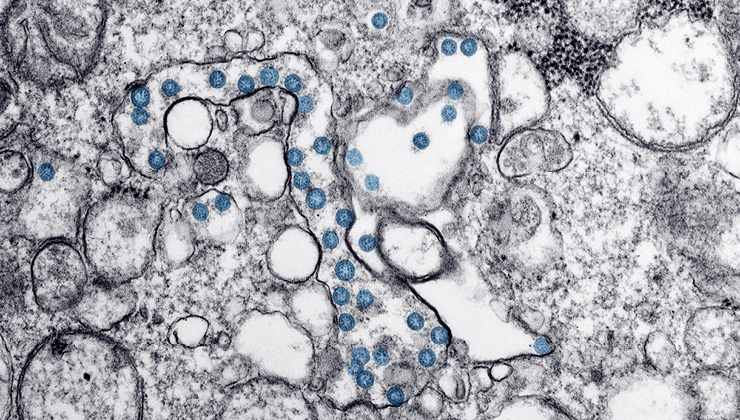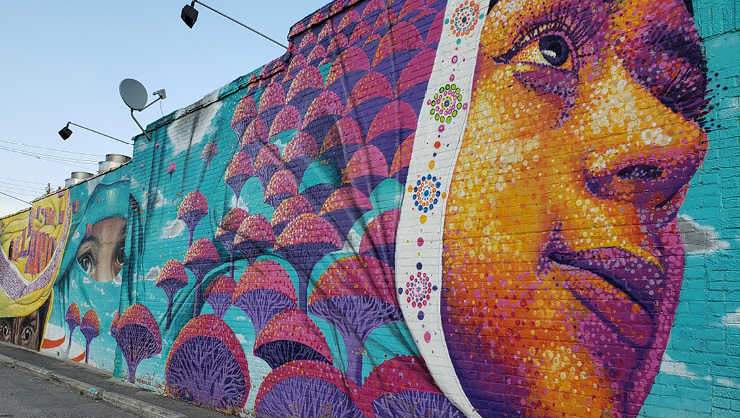This blog is based on a UN Women commissioned research paper which offers a fuller account of the research and its findings: National Action Plans on Women, Peace and Security: Critical Tools in COVID-19 Responses in the Arab States Region.
Are National Action Plans on the Women, Peace and Security agenda (NAPs-WPS) relevant to national responses to the pandemic? Aisling Swaine looks at six NAPs-WPS from the Arab States region, showing us the synergies between pre-existing policy and planning documents that outline gendered responses to crisis and the UN COVID-19 response framework.
As the Covid-19 outbreak exacerbates the impacts of conflict and gender inequalities across the world, an evident challenge for states is ensuring the nexus of conflict, peacebuilding, gender inequalities and the pandemic are addressed.
Implementing the women, peace and security (WPS) agenda and responding to Covid-19 are thereby not mutually exclusive endeavours. We cannot however assume that this understanding is the basis for state responses to the pandemic, particularly those in conflict-affected settings. Commitments to gender equality or women’s participation are more often than not set aside or deprioritised in a time of crisis, as has been seen in the emergency response and in the context of peace negotiations globally.
Given the nature of the spread of Covid-19, and notwithstanding the need for preparedness planning, the pandemic has for most states, required planning ‘after-the-fact.’ Perhaps forgotten, or set aside, are existing policy and planning frameworks useful in pandemic responses. Many states have for example adopted National Action Plans on WPS (NAPs-WPS) which means that planning to guide women-centric if not gendered responses to crises already exist. While not the panacea to addressing the ways that different and intersecting inequalities determine the impact of this pandemic, the knowledge, analysis, content and actors involved in the development and coordination of those action plans are at least a starting point and an adaptable resource to advance a gendered response at this time.
A fuller assessment reveals where and how NAPs-WPS are relevant to Covid-19. Using a textual analysis, the NAPs-WPS of the Arab States region, Iraq (2014), Jordan (2017), Lebanon (2019), Palestine (2017), Tunisia (2018) and Yemen (2020) were assessed against the United Nations Framework for the Immediate Socio-economic Response to COVID-19 (hereafter ‘UN Covid-19 Framework’). Adopted at the outset of the pandemic, the UN Covid-19 Framework encompasses five pillars: health, protecting people (hereafter social protection), economic recovery, macroeconomics and multilateral collaboration and social cohesion. It is informed to some degree by gender and the pillars include actions related to women’s specific needs and rights (e.g. addressing violence against women (VAW), using gendered socio-economic assessments and ensuring inclusive social dialogue and political engagement).
The knowledge, analysis, content and actors involved in the development and coordination of those action plans are at least a starting point and an adaptable resource to advance a gendered response at this time.
To substantiate the relevance of NAPs-WPS to the current crises, the textual analysis sought to assess: How are NAPs-WPS specifically relevant to national responses to the Covid-19 pandemic, such as through the UN Covid-19 Framework? Are there specific areas of synergy between the actions in the six NAPs-WPS and the action areas under each of the five pillars of the UN Covid-19 framework?
Findings
The textual analysis revealed clear synergies between the actions in the NAPs-WPS and the UN COVID-19 Framework. Of the total number of actions across all six of the Iraq, Jordan, Lebanon, Palestine, Tunisia and Yemen NAPs-WPS, 64 per cent are identifiable as directly related to the recommended responses to the pandemic set out in the UN Covid-19 Framework i.e. directly relevant to the established model guiding responses to the pandemic.
Of the actions that correspond with the UN Covid-19 Framework, the majority related to the social protection pillar (61 per cent), (Tunisia and Yemen with the most actions on social protection at 55 per cent and 50 per cent). Of those actions, the majority relate to VAW, which account for 47 per cent of the total actions related to social protection pillar. The strong focus on responding to VAW is a trend evident across NAPs-WPS globally. It will be critical that the increased reporting of VAW in the region and globally as a result of Covid-19, is not interpreted as simply a symptom of the pandemic. Rather, the visibility of VAW as a consequence of the pandemic should draw attention to the need to address pre-existing violence and inequalities in the context of these plans, with or without the presence of a pandemic.
The second highest area of congruence between the NAPs-WPS and the UN Covid-19 Framework is under the Social Cohesion pillar. Ensuring that the pandemic does not undo progress on peacebuilding regionally, but that social dialogue and peace processes retain support and momentum wherever possible, has become critical in the pandemic. The Yemen (27 per cent) and Palestinian (17 per cent) action plans contain the highest percentage of correlating actions, such as promoting the role of women in reconciliation initiatives, with the Yemen NAP-WPS aiming for a 30 per cent representation of women in those processes.
While policies such as confinement and social distancing may inhibit social interactions, the principles of social dialogue and empowerment underpinning the UN Covid-19 Framework’s pillars on social cohesion will be important to maintain through and inform responses to the pandemic, and dovetail with the women’s participation and empowerment frames employed in the WPS agenda. Existing NAPs-WPS that set out targets for women’s participation thereby become an important tool in national responses to the pandemic.
It will be critical that the increased reporting of VAW in the region and globally as a result of Covid-19, is not interpreted as simply a symptom of the pandemic. Rather, the visibility of VAW as a consequence of the pandemic should draw attention to addressing pre-existing violence and inequalities in the context of these plans, with or without the presence of a pandemic.
While the impact on macro as well as national economic systems as a result of Covid-19 is clear globally, the analysis here finds very few actions within the NAPs-WPS focused on women’s livelihoods, business entrepreneurship, formal economic roles as well as informal economic activities, which are all included in the UN Covid-19 Framework. This is despite evidence that points to gaps in support for women’s economic rights in peacebuilding initiatives.
This prompts some pause in respect of the WPS agenda – is the agenda itself overlooking critical issues like women’s economic and employment rights, or are the action plans failing to include these issues, or both? Many NAPs-WPS are oriented towards specific areas of state interests such as security and armed violence concerns, with little room for what may be the more immediate needs of women affected by armed conflict, displacement and migration i.e. economic independence. As has been shown in the Ukraine, the “NAP’s inattention to Ukrainian economic policies … contrasts with the gendered economic effects of the conflict and state reforms”.
In response to Zika and Ebola, bodies like the WHO and World Bank have been shown to wholly neglect a gendered economic analysis of the epidemics. Similarly, using NAPs-WPS in response to the pandemic without addressing the gendered economic effects of austerity and other measures will miss the vital link between gender, security and a health pandemic. Similar to critiques of post-conflict recovery processes where a return to the pre-conflict context is an established regressive step for women, ardent attention to what ‘building back better’ means in the context of response to and the aftermath of this pandemic in respect to gender and broader power relations, requires critical attention.
Conclusion
The key findings summarised here (more in the full report) point to the critical importance of ensuring that NAPs-WPS continue to be implemented during the pandemic. They also point to the need for much deeper planning approaches to be adopted: planning that is based on and responds to a fulsome analysis of the pernicious nature of multiple gendered, racial and broader inequalities that are causal in different women’s differing social, economic and personal safety rights deficits and vulnerabilities in every context, which in turn ensures that the plans are ready and adaptable to sudden onset crises such as this pandemic.
Implementation of the WPS agenda and its associated planning strategies will no doubt evolve towards implicitly or explicitly engaging with the Covid-19 pandemic. Planning to “advance gender equality as planned change” is needed – in any planning approaches that underpin NAPs-WPS, and in all of the Covid-19 responses generally adopted by states globally.
The views, thoughts and opinions expressed in this blog post are those of the author(s) only, and do not necessarily reflect LSE’s or those of the LSE Centre for Women, Peace and Security.





